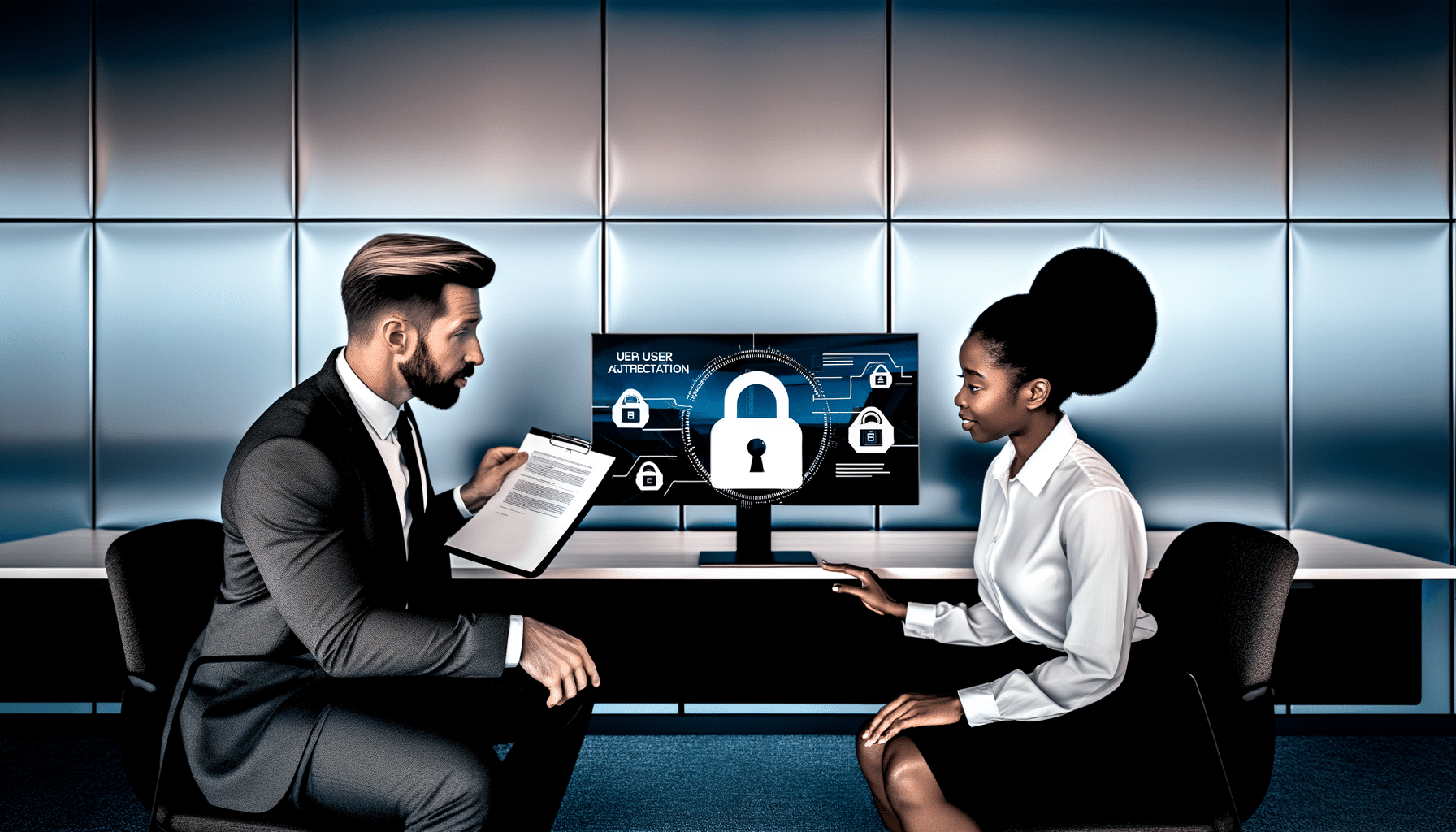- Security Essentials
- October 5, 2023
The Importance of User Authentication in Record-Keeping Systems

Understanding the Critical Role of User Authentication in Record-Keeping Systems
The world of record-keeping is no longer a slow-moving machine powered by binders and file cabinets. We’ve evolved into a world of digitalization and automation, where one click can access vast repositories of sensitive data. With this transformation comes an urgent need for robust security measures, of which User Authentication is the cornerstone.
Why User Authentication Matters
The need for user authentication in record-keeping initiatives has never been more pressing. As cyber threats grow more advanced, protecting sensitive information is vital to maintaining trust and compliance. User authentication serves as the first line of defence, ensuring that only authorized individuals can access records. This is particularly crucial for businesses and government departments that handle sensitive data regularly.
The Core Benefits of User Authentication
1. Enhancing Security
Your record-keeping system is only as secure as its weakest link. Without robust user authentication, the door is left ajar for unauthorized access, potential data breaches, and unauthorized modifications. By implementing strong user authentication mechanisms, such as two-factor authentication or biometric scans, records become far less vulnerable.
2. Ensuring Compliance and Data Integrity
Many industry standards and regulatory frameworks, such as GDPR, HIPAA, and SOX, mandate strict access controls. User authentication fortifies compliance by ensuring that access to sensitive data is restricted and logging is thorough. This guarantees that records maintain their integrity and traceability, which is crucial for audits and legal inquiries.
3. Simplifying Access Controls
One of the substantial benefits of authentication technology is the ability to customize access. By assigning credentials and role-based permissions, organizations can streamline operations. This allows individuals to access only the information necessary for their roles, minimizing the risk of internal data leaks.
Implementing Effective User Authentication
To maximize the effectiveness of user authentication in your record-keeping system, consider the following approaches:
- Multi-Factor Authentication (MFA): This technique adds an extra layer of protection by requiring additional verification factors beyond just passwords, such as a hardware token or a fingerprint scan.
- Role-Based Access Control (RBAC): Define roles for each user and grant access privileges accordingly. This minimizes excessive access and potential misuse of information.
- Regularly Updated Security Protocols: As cyber threats evolve, so too should your security measures. Regular updates and evaluations of your authentication protocols are vital.
Making Authentication Seamless
While security is critical, every organization wishes to avoid cumbersome interfaces. RecordsKeeper.AI recognizes that optimal user experience should not be sacrificed. Our SaaS platform balances security with simplicity by integrating AI technologies that intelligently manage authentication processes. This approach ensures that security protocols do not interfere with workflow productivity and ease of access.
The Future of Secure Record Management
RecordsKeeper.AI is committed to advancing record management beyond typical security measures. Integrating blockchain technology ensures that records remain immutable and transparent, further enhancing trust. With user authentication at the core, it provides an unbreachable defense against unauthorized access while simplifying compliance and access control.
Conclusion
The importance of user authentication within record-keeping systems cannot be overstated in an era where data is both an asset and a target. By adopting best practices including MFA, RBAC, and AI-enabled solutions offered by platforms like RecordsKeeper.AI, organizations can protect their most valuable resources – their data.
If you’re keen to explore how cutting-edge technologies are reshaping record management and fortifying security frameworks, I invite you to stay connected for more insights and updates. Let’s navigate this new landscape together, focusing on what matters most: trust and integrity.
Toshendra Sharma is the visionary founder and CEO of RecordsKeeper.AI, spearheading the fusion of AI and blockchain to redefine enterprise record management. With a groundbreaking approach to solving complex business challenges, Toshendra combines deep expertise in blockchain and artificial intelligence with an acute understanding of enterprise compliance and security needs.
Related Posts

Why Multi-Factor Authentication is Essential for Data Backup Systems
Understand the role of multi-factor authentication in securing backups.
- August 26, 2023
Archives
- December 2024
- November 2024
- October 2024
- September 2024
- August 2024
- July 2024
- June 2024
- May 2024
- April 2024
- March 2024
- February 2024
- January 2024
- December 2023
- November 2023
- October 2023
- September 2023
- August 2023
- July 2023
- June 2023
- May 2023
- April 2023
- March 2023
- February 2023
- January 2023
- December 2022
- November 2022
- October 2022
- September 2022
- March 2019
Want to get more content like this?
Signup to directly get this type of content to your inbox!!
Latest Post
Organizing External Auditor Access
- December 22, 2024
Document Control in Manufacturing Plants
- December 21, 2024
Handling Rush Financial Report Requests
- December 20, 2024
Managing Record Access After Staff Changes
- December 19, 2024





